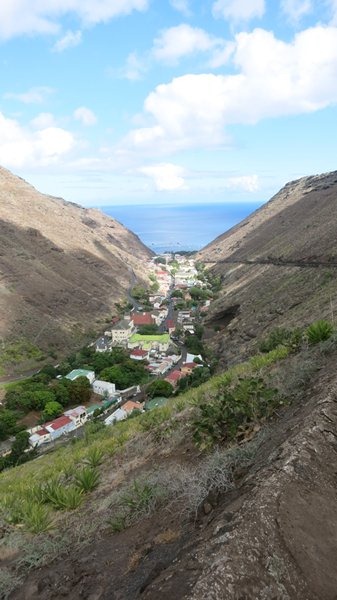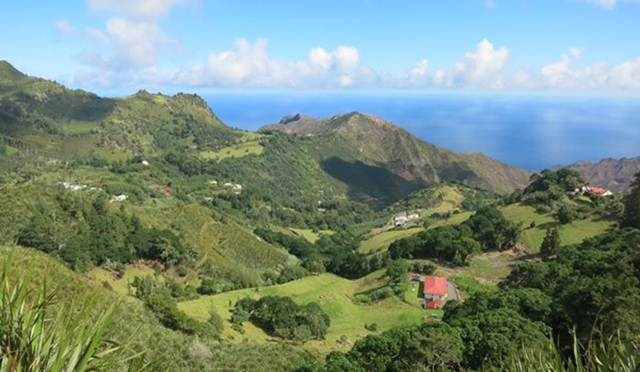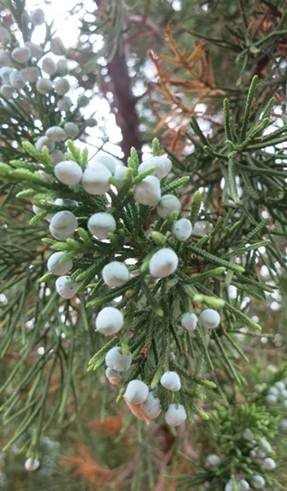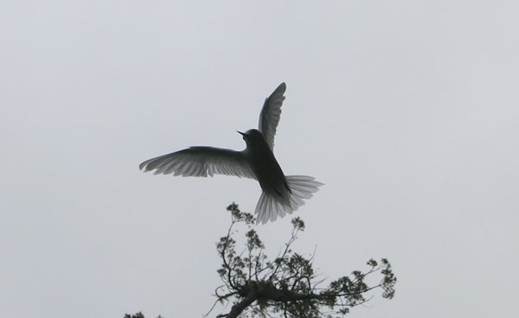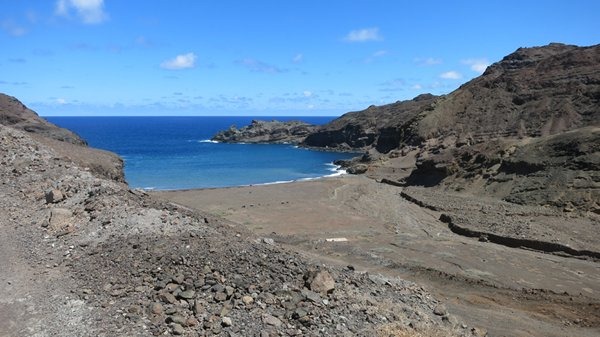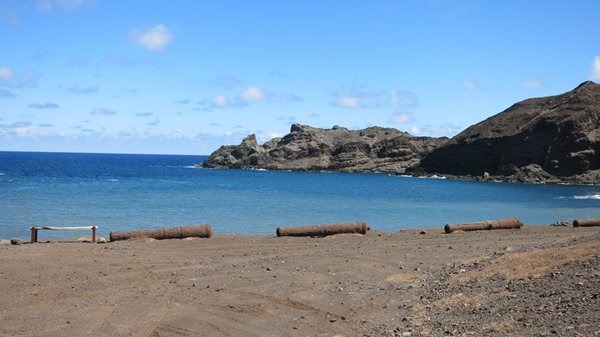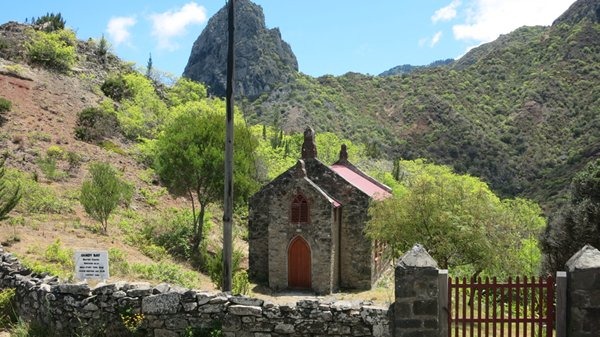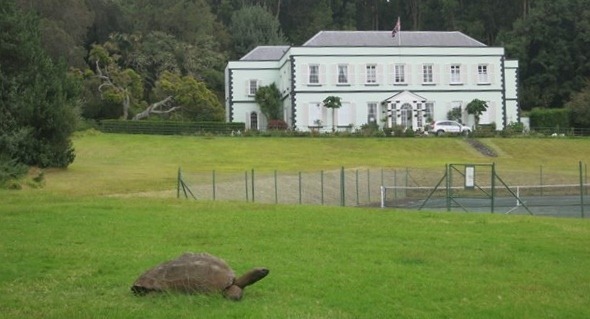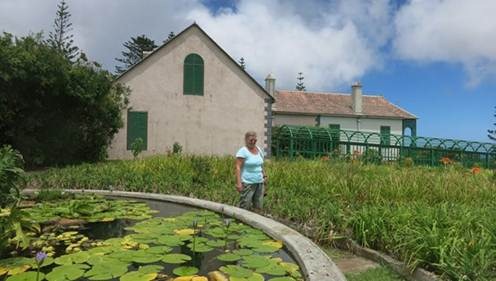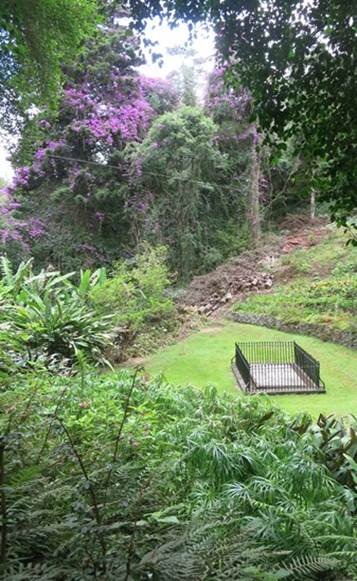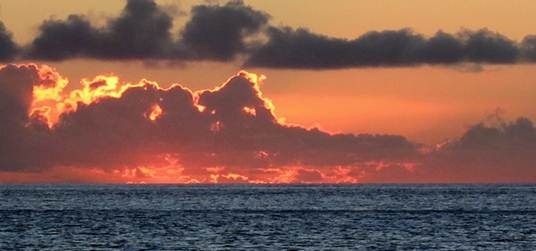Sights of St Helena

|
We hired a car for 3 days to allow us to wander this pretty island. The roads are narrow and precipitous climbing up and down the steep sided valleys that are a feature of the island. The road out of Jamestown is typical.
As one climbs higher the landscape becomes much greener and in places reminiscent of Wales on a good day.
There is little commercial farming although there are a few cows and sheep grazing in meadows and the odd small patch of market gardening. The island used to produce New Zealand flax ... the Aloe like plant just visible in the left foreground of this photo. This was the mainstay of the island in times past, most employment involved flax growing and harvesting as it was the major cash crop. Those days are gone and needless to say it is uneconomic to harvest now.
Much of the centre of the island is forested with pleasant shady walks through mixed woodland including these junipers.
There were also many birds flitting about including a small red job that was far too quick to photograph and these fairy terns who seemed to enjoy posing and fluttering for a good shot.
Returning to sea level the contrast could hardly be greater with this barren scene only a few miles from those above.
Sandy Bay is the only sandy beach on the island and like many Canary Island beaches it sports black sand which gets hot underfoot.
It was well fortified in the past with cannon trained on the entrance to the bay should any French ships attempt entry in a bid to rescue Napoleon. Much of the island is fortified for the same reason so cannon lying useless now, such as these at Sandy Bay, are a common sight along St Helena's coastal areas.
The island is dotted with small settlements often with their own shop and church or chapel.
As in many other ways the island is reminiscent of the UK of 60 years ago. Change is probably on its way, however, as the new airport will open in 2016. The locals have mixed feelings about its coming. There is the hope that medical attention for difficult issues will be more easily available , currently it takes 5 days to get to South Africa and that is once the RMS St Helena has arrived at the island. Many who want development, especially to keep their young people from leaving, hope that tourism will take off. At the same time many of the locals, particularly the more mature, obviously enjoy their isolation and the excitement of the monthly deliveries of the RMS St. Helena.
The governor had a particularly lovely residence complete with giant tortoises, a gift from the Maldives many years ago. The most famous, Jonathon, is said to be 180 years old – how does anybody know?
The island's most famous past resident is, of course, Napoleon whose prison was Longwood, a very pleasant home high on a hill and now overlooking the site of what will be the new airport. Originally a farmhouse the building was hastily converted to house Napoleon. It was perhaps not quite as palatial as some of his former residences but the interior was beautifully furnished with elegant Georgian pieces and attractively decorated rooms.
He spent 6 years on the island before his death and clearly had an eye for a good resting place. This was somewhere that he spent some peaceful hours communing with nature whilst coping with the endless boredom he complained of. He requested that should he die and if, as he suspected, the English would not allow his body to be returned to France for burial near the Seine amongst his people then this place is where he wished to be buried. For a few years he lay in this charming spot with only the sounds of trickling water and the birds.
Although for many years it was thought that Napoleon died of Arsenical poisoning through some villainous English intrigue involving wall paper, it has now been proven that he died of the same cancer that his father and sister died from.
He rested in this extremely beautiful and tranquil place in a steep sided valley.
The French own and maintain both these sites although Napoleon's body only spent a few years here before it was agreed that it be removed to Paris for a more prestigious location. I know where I would rather be!
|
